WPP celebrates 20 years of moving health forward
Being the sole doctor in a physician-shortage, resource-limited area of central Wisconsin would not be everyone’s cup of tea, but for Jenna Sebranek, MD ’13, it’s a dream come true.
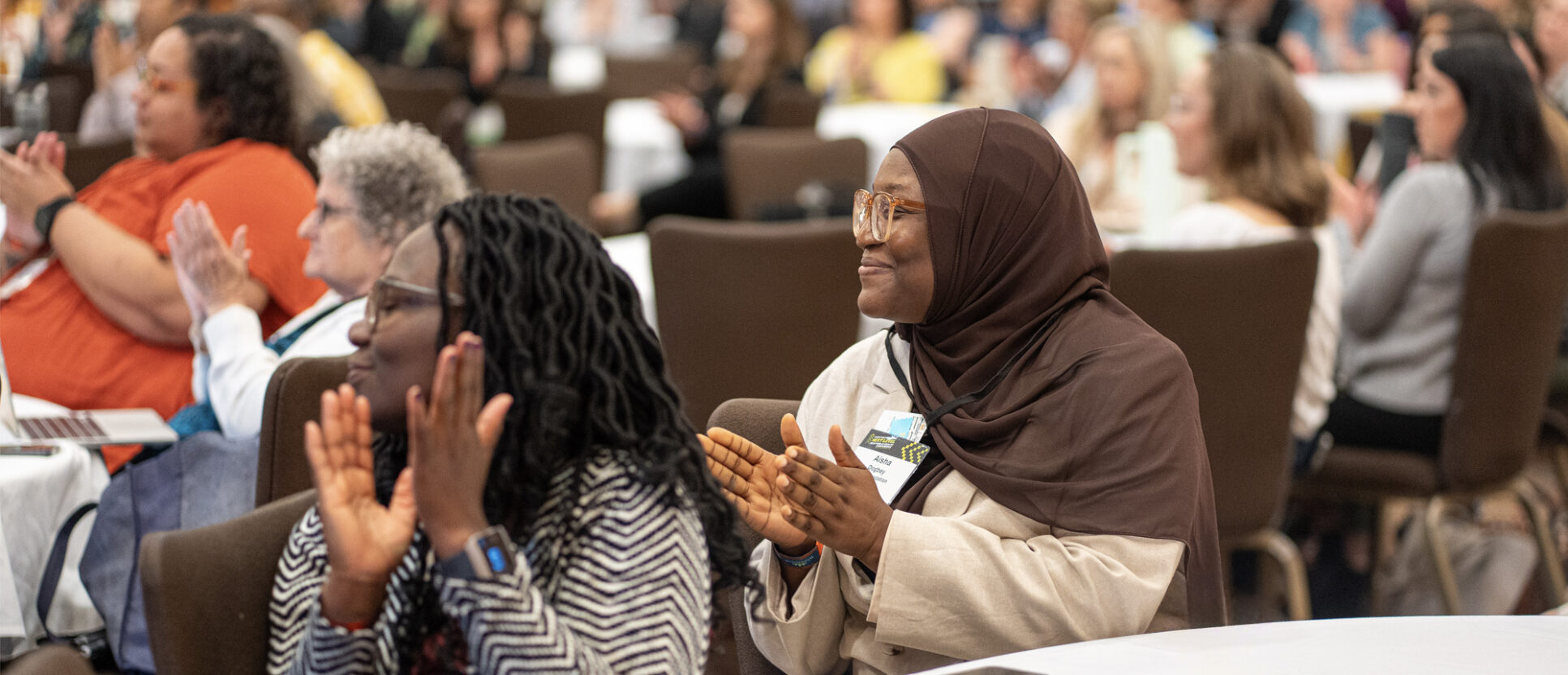
For the past 20 years, the Wisconsin Population Health Service Fellowship Program and its fellows have worked to improve the health of the people in the state, from Vilas County in the Northwoods to Rock County on the southern border, and from Milwaukee on Lake Michigan to La Crosse on the Mississippi River.
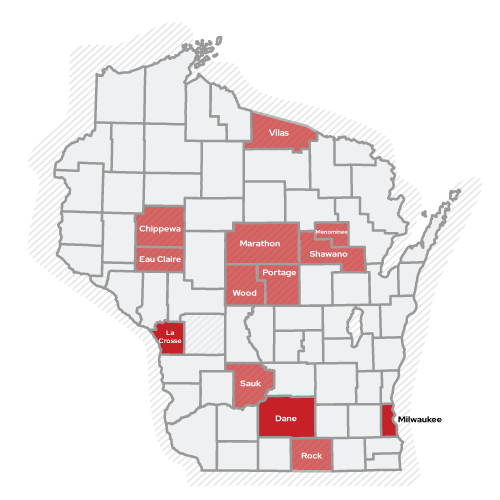
The fellowship — designed for early-career public health professionals — is a two-year service and training program at the University of Wisconsin School of Medicine and Public Health. The program places trainees and recent graduates in organizations to help tackle some of Wisconsin’s most pressing public health challenges, while building their professional skills and experience as future public health leaders.
In 2024, fellow Cait McCrory, MPH, has been working on a public dashboard that tracks infectious diseases in Milwaukee’s wastewater, an early warning system for the presence of viruses that cause diseases like COVID-19, influenza and respiratory syncytial virus.
In central Wisconsin, fellow Sydney Resler, MPH,MS, has been leading a project to install harm-reduction vending machines in two cities, with the goal of allowing community members to access fentanyl testing strips and Narcan to prevent and reverse opioid overdoses. She is also working on a qualitative data project to learn how COVID-19 disproportionately impacted communities in Wood County. Her work will help inform equitable solutions to improve health outcomes.

Further north in Lac du Flambeau, Wisconsin, recent fellowship graduate Erik Ohlrogge, MS, worked on lead-testing projects in 100 tribal schools in Wisconsin and Minnesota, and on a Good Health and Wellness in Indian Country initiative that focuses on healthy food availability, tobacco cessation, diabetes prevention and oral health interventions in Native communities served by the Great Lakes Inter-Tribal Council.
In Madison, fellow alumna Paula Tran, MPH ’10 (PG ’12), leads Wisconsin’s public health efforts as a state health officer and administrator at the Wisconsin Department of Health Services’ Division of Public Health. Tran earned her master of public health (MPH) degree at the UW School of Medicine and Public Health and completed her population health service fellowship in the division she now leads.
“The fellowship allowed me to dive deep into issues of health equity, allowing me to do work we didn’t yet have an infrastructure for,’’ Tran said. “It enabled me to work with seasoned professionals at a high leadership level. There are very few first jobs out of graduate school that provide access to those high levels while still being a learning experience.”

The service fellowship was the brainchild of Patrick Remington, MD ’81, MPH, the former associate dean for public health at the School of Medicine and Public Health, who previously served in the Centers for Disease Control and Prevention’s Epidemic Intelligence Service and thought Wisconsin should have its own public health corps.
“The fellowship program really is a triple win,’’ noted Remington, now an emeritus professor of population health sciences. “It provides experiences for people early in their careers; it provides a service to the state of Wisconsin; and it helps build the public health workforce in the long run.”
Since the fellowship launched in 2004 with a grant from the Wisconsin Partnership Program (WPP), 104 fellows have completed it and begun working in 50 organizations across the state. Program director Wajiha Akhtar, PhD, MPH, notes that 80 percent of the fellowship graduates in the last three cohorts have continued to work in Wisconsin’s public health workforce.
The Fellowship Program is one of the Wisconsin Partnership Program’s earliest educational investments and a cornerstone of our efforts to strengthen Wisconsin’s public health workforce across the state.
- Amy Kind
“The Fellowship Program is one of the Wisconsin Partnership Program’s earliest educational investments and a cornerstone of our efforts to strengthen Wisconsin’s public health workforce across the state,” said Amy Kind, MD ’01, PhD ’11 (PG ’05, ’07), associate dean for social health sciences and programs at the School of Medicine and Public Health and the executive director of WPP. “The Fellowship Program’s notable successes in embedding public health leaders throughout Wisconsin continues to advance WPP’s vision of bringing about lasting improvement in health and well-being across Wisconsin. This initiative is a wonderful example of the Wisconsin Idea in action.”
In the two-year fellowship, a new group of fellows start each July. Akhtar says the ongoing WPP grant provides core funding for program staff and the salaries of three fellows per cohort. An additional three to four fellows have their salaries paid by their placement sites, resulting in a group of six to seven new fellows each year.
“This arrangement has helped us build long-term relationships with these placement sites, allowing us to better understand public health priorities around the state,’’ Akhtar explained.
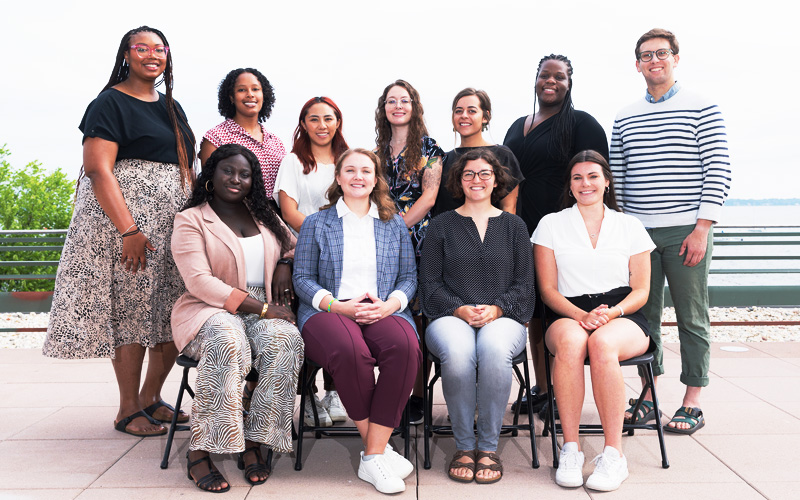
Emily Hyde, MPH, serves as the fellowship’s program manager. An alumna of the program, she explained that fellows meet monthly about health equity topics and attend a rural health retreat each autumn.
“These meetings allow fellows to understand pressing public health issues, while also tackling how to operationalize health equity in their work,” Hyde observed. “It is a great way to learn about the state’s health priorities and the organizations that are doing trail-blazing work in Wisconsin.”
Thomas Oliver, PhD, MHA, a professor in the Department of Population Health Sciences and faculty leader of the fellowship, said, “I have been impressed by the topics and meetings over the years, including the emphasis on how historical trauma and structural discrimination intersect with public health.”
In years past, fellows learned from Black community leaders in Milwaukee how redlining, freeway development and incarceration have affected neighborhoods. In their annual rural retreat, fellows also have tackled ways to understand how displacement of Indigenous communities contribute to present-day challenges in education, housing, nutrition, health care and economic opportunity.
“The skills fellows develop in planning and facilitating these meetings go well beyond what they would experience in other first jobs,” Oliver said. “The fellowship program truly exemplifies the Wisconsin Idea, but in a bi-directional way. The fellows provide talent and resources as they serve Wisconsin communities, and in turn, they gain tremendous knowledge and experience in public health leadership.”
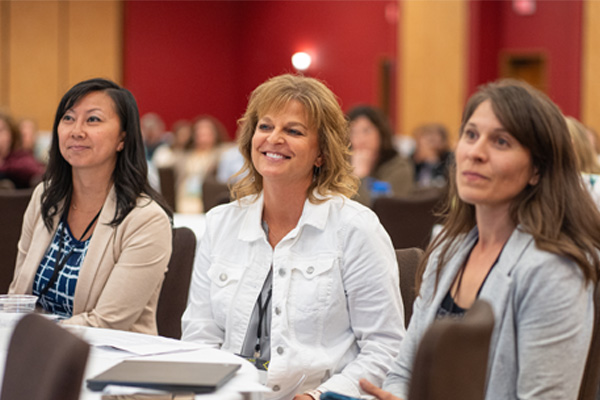
When Sue Smith, RN, MSN, CPM, director and health officer of the Wood County Health Department, and fellow preceptor Kristie Egge, MPH, director of strategic initiatives in that department, look around Wisconsin Rapids, they can see several projects that population health service fellows had a hand in shaping. These include a senior living center downtown and a nearby farmer’s market. Fellows also have worked on issues less visible from the street, including the health of people incarcerated at the county jail.
“Hosting fellows has helped take our health-equity approach to a new level,” said Egge. “Learning about and understanding equity issues, getting the opportunity to engage with people most disproportionately impacted, and supporting or leading efforts on policy and environmental changes have strengthened our approach to this work.”
Smith said it sometimes is an advantage to have a fellow look at local health issues with fresh eyes.
“Having a fellow point out things that should be done differently makes it more of an external review,’’ Smith noted. “And this can make it easier to work through difficult conversations and decisions.”
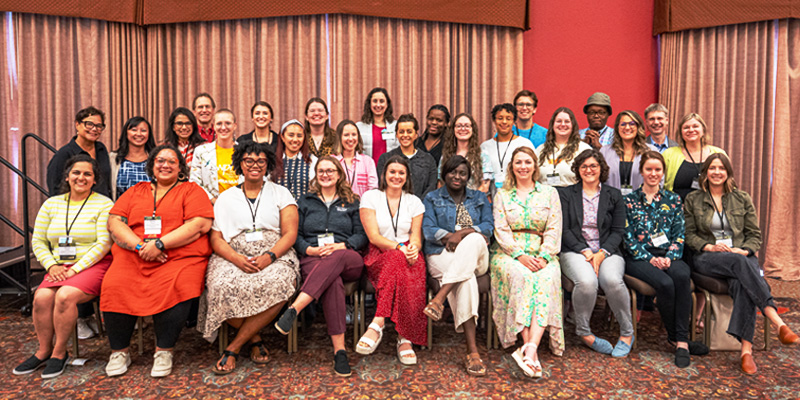
In Wood County, Resler has found herself in meetings with former fellows who have been hired as permanent staff or are serving as consultants. These program graduates are in leadership roles across the state and the nation, including at health departments in Wisconsin Rapids and Sheboygan, as well as at a federal agency.
“I think the community created by the fellowship is unique and strong,’’ exclaimed Tran. “It is a shared identity. I have no hesitation reaching out to any fellow, even if I do not know them personally. I feel an affinity toward them, and I think that sense of community is important.”
McCrory — who accepted a position as an epidemiologist in the Milwaukee Health Department, where she trained – agreed, adding, “The community that comes from the fellowship is amazing, and it extends all the way to the leadership positions at DHS. It is a life-changing experience.”
We are grateful to be celebrating 20 years of impact with so many who have played important roles in the success of the fellowship program.
- Wajiha Akhtar
Partners of the Wisconsin Population Health Fellowship Program gathered at the annual Wisconsin Public Health Association’s annual conference to celebrate the program’s 20th anniversary. The enthusiasm and appreciation for the fellowship program and the strong connections forged by all involved were palpable throughout the night. “We are grateful to be celebrating 20 years of impact with so many who have played important roles in the success of the fellowship program,” said Akhtar. “As we look toward the future, we know these partnerships and collaborators will continue to play a vital role in advancing public health in Wisconsin.”
Banner image: Attendees celebrate the 20th anniversary of the Population Health Service Fellowship Program at the Wisconsin Public Health Association annual conference.